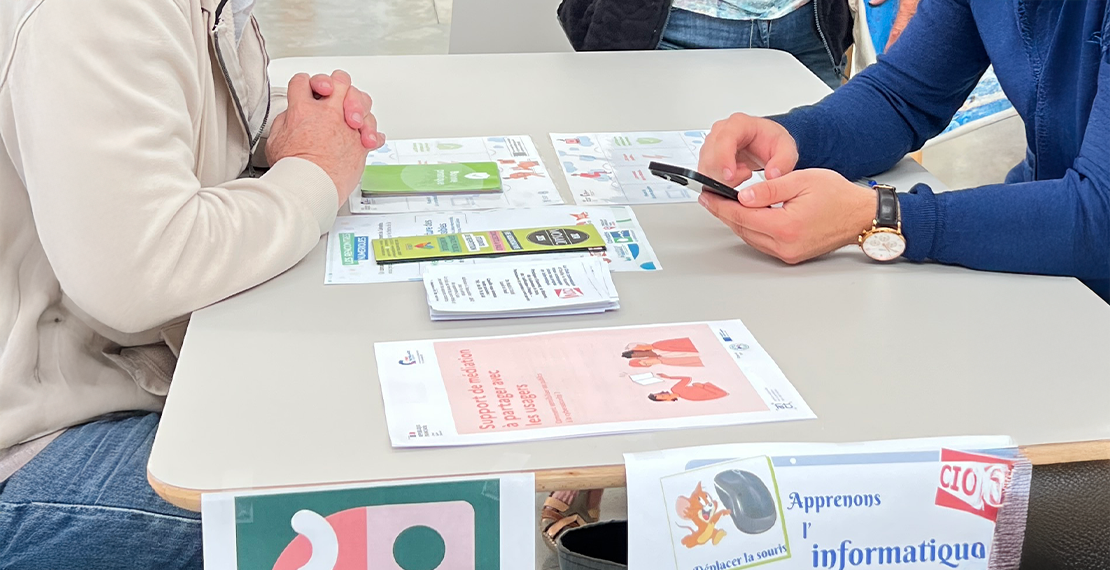Cybersecurity in Lisieux

On Wednesday, June 4, a cybersecurity forum was held in Lisieux. Its goal was to raise awareness among residents, particularly seniors in the region, about the dangers of the digital world.
Flashback: it’s June 11, 2024, at the Caen Memorial. On that day, a call is made. It’s not about the liberation of France, but rather an initiative aimed at bringing together key players from the Normandy region around a dozen actions related to cybersecurity. This call gave birth to the forum, a first here in Lisieux. The event took place at *La Filature des Possibles*, a third-place dedicated to training and youth. This space also offers shared work areas available for rent.
A growing danger
For the past four years, the government has been training digital advisors. There are now 4,000 of them across France, working within various local organizations. Their mission: to share their knowledge with seniors and support them in learning digital skills. Mathilde Fonitcheff is one of these advisors trained by the state. She is now a Digital Advisor with France Services and the organizer of this forum. For her, cybersecurity is a key issue. On this occasion, she invited the National Gendarmerie to speak and raise awareness among participants.
In 2024, an annual report from the Ministry of the Interior reported 348,000 crimes and offenses related to digital activity — highlighting the growing scale of the threat. In response, the government has strengthened its commitment. The Minister of the Interior recently stated: “Cybersecurity is everyone’s business. We must join forces to protect our citizens against digital threats.” This statement underscores the importance of collective action — involving institutions, businesses, and citizens — to strengthen the country’s digital resilience.
Combating the digital divide
Seniors face several challenges. The first is a lack of information. These meetings aim to show that concrete solutions exist. Many organizations hold workshops to reduce the digital divide. Most of these initiatives are local and community-based, such as those by CIOV or Le Lab Lisieux Normandie. But some also come from the private sector. This is the case with Capané, a company founded by Élodie Coquin, which offers home visits. “We now live in a world where all our devices are connected, and all procedures are carried out online. Not using them is equivalent to social isolation.”
The main obstacle remains fear. Many seniors are reluctant to use digital tools. Due to a lack of knowledge, they fear being hacked at the slightest connection. The challenge is to show that it is possible to protect oneself simply—without downplaying the risks, but also without exaggerating them. “The difficulty is not to trivialize the issue, but to make it accessible. We must not treat people like idiots,” explains Mathilde. Jean-François, a volunteer at CIOV, shares the same observation. His role is to reassure. “We teach them the basics: how to set up a password, recognize a malicious website, or identify a suspicious domain name.”
Creating human connection
Beyond cybersecurity, this forum also aimed to create social connections. “I wanted to bring together as many digital-related partners as possible,” explains Mathilde Fonitcheff. The goal is to raise awareness of the various existing workshops and encourage collaboration between participants to avoid duplication. “Many offer training sessions. Ideally, each should have their own specialty: tablets, phones, etc.” Mathilde explains that cybersecurity also serves as a reason for people to meet and interact.
Article written by Arthur Courtois

